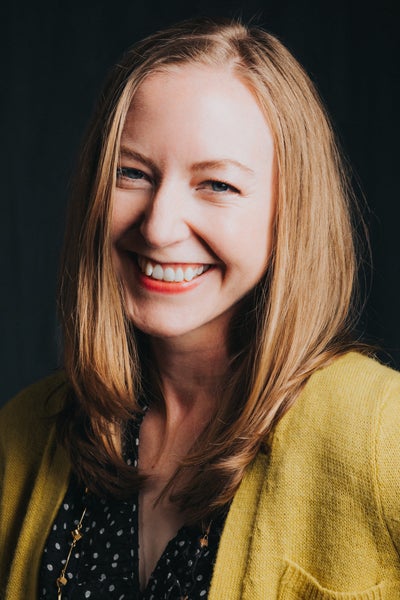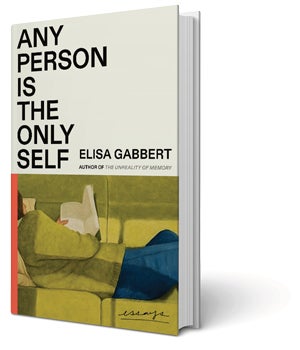A Life Well Read
In a new essay collection, poet and essayist Eliza Gabbert revels in rereading literary classics.

Winter 2025
Interview by David Silverberg
Poet and essayist Elisa Gabbert has always loved reading and writing critically on authors she admires, so much so that passion for her bookworm life comes through vividly in “Any Person Is the Only Self,” her third collection of essays. One essay will reveal her outlook on “The Catcher in the Rye” decades after reading it for the first time (“Salinger was writing more for me then than me now”), while another essay will see Mary Shelley’s “Frankenstein” as a premonition. We spoke to Gabbert to learn more about her intentions behind sharing these memorable moments with literary classics.
What drew you to write about reading the books you enjoyed ages ago, and the books you discovered for the first time? My last collection of essays was all about climate change, natural disasters and some bleak stuff, and it took a bit of a psychological toll on me. I wanted to read a bunch of novels and poetry, which I was able to do when the pandemic happened and I was stuck in the house.
Some people write about their traveling and vacations, their experiences outside their home, and for me reading books is my traveling. That’s when I feel alive.
In the course of rereading some of your favorite authors, did you find you had a renewed appreciation for them and their works? I feel like I’m a very slow reader, as I tend to pause a lot, stare up into space, and then I come back to the page. So it can take me a very long time to get through a book. I used to think that there are so many books I haven’t read yet that I can’t justify rereading books, but for this collection I gave myself that assignment — to see if my feelings had changed at all. It was an experiment.

Essays by Elisa Gabbert ’02
FSG Originals, 2024
In the last essay, I wrote about rereading John Updike’s “Rabbit, Run,” which I loved as a teenager. It’s a book about lost youth. Back when I read it, I hadn’t lost my youth, so it’s amazing it appealed to me so much back then. Now it’s actually much more poignant of a book to me, and the level of empathy I have for the characters is much richer. This experiment made me realize that books are only going to get better for me the longer I’m alive, because I’ll have more personal experiences to bring to the books that I’m reading.
How do you approach writing an essay differently than writing a poem? For poems to arrive to me, it feels almost like a magical visitation. I can’t sit down and make myself write a poem, but instead it shows up to me as a gift.
I like to write essays when I’m not writing poetry because I feel like I’m using my writerly mind, and I get just as much pleasure out of trying to convert those thoughts into language I can play around with.
How did your time at Rice inform your writing career and your trajectory as an author? I met Susan Wood, who used to teach at Rice, and she was very encouraging of my writing. Without her mentorship, I wouldn’t have gone on to get my MFA to study poetry more intensely. I still am interested in my majors — linguistics and cognitive sciences — and I sometimes wonder if it weren’t for Susan, and the found family I enjoyed meeting at Rice, would I have taken a different path in life? Would I be working in a tech job in Silicon Valley right now?
Susan Wood is the Gladys Louise Fox Professor Emerita of English in the School of Humanities.
